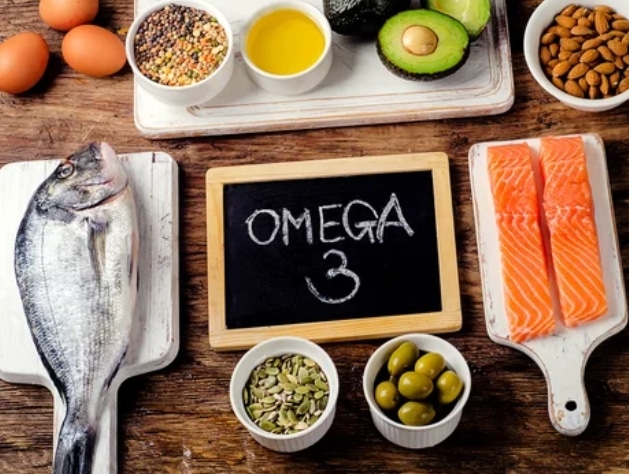Omega-3 fatty acids are a class of essential fats that offers the body a lot of benefits. While people are generally advised to take fat in moderation or not at all, not all fats are bad for the body, and Omega-3 is one of them. Some of the health benefits of omega-3 fatty acids include:
- It can reduce blood pressure levels
- It promotes heart health
- It promotes eye health
- It reduces inflammation
- It promotes brain health during pregnancy
These are just some of the proven benefits of Omega-3 fatty acids. Also, Omega-3 fatty acids do not make you put on weight like other kinds of fat.
As you can already tell, including foods rich in Omega-3 fatty acids in your diet would benefit your body a great deal.
Many health experts recommend 250–500 mg of omega-3s per day for healthy adults. Thus, it is healthy to consume the Omega-3 foods in Nigeria daily.
So today, we will be looking at some Nigerian foods that are rich in omega-3 fatty acids.
1. Fish
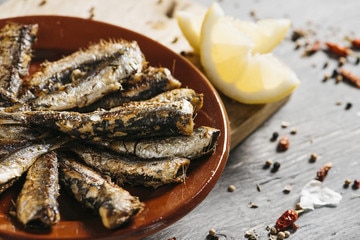
Fish is one of the common sources of Omega-3 fatty acids. Fish contain a lot of nutrients and minerals, including Omega-3.
These fatty acids, particularly EPA and DHA, are crucial for brain health, reducing inflammation, and lowering the risk of chronic diseases.
Common edible fishes in Nigeria, such as stockfish, mackerel, tuna, trout, crayfish, and salmon, are excellent sources of Omega-3 fatty acids.
These fishes are quite common and are very easy to find. Just including them in your daily diet would supply your body with enough Omega-3 fatty acids.
2. Walnuts
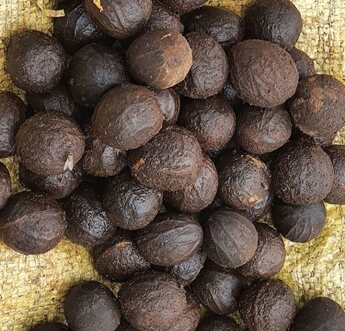
Do you remember walnuts? Walnuts are loaded with nutrients like copper, magnesium, and Omega-3 fatty acids.
Walnuts are not only a versatile ingredient in Nigerian cuisine but also a powerhouse of omega-3 fatty acids.
One ounce of walnut contains as much as 28 grams of Omega-3 acids. If you do not like the taste of walnuts, you can blend them with other fruits to enjoy them better.
One ounce of walnuts contains about 2.5 grams of ALA, a type of omega-3 fatty acid that supports heart health and cognitive function.
Studies have shown that regular consumption of walnuts can improve lipid profiles and reduce the risk of cardiovascular diseases.
3. Snails
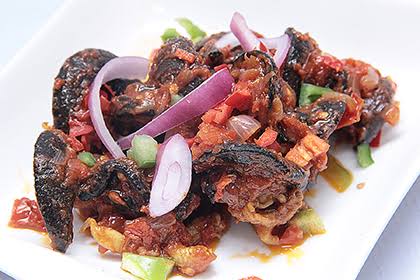
A lot of Nigerians use snail meat to prepare a variety of soups and stews. Snail meat is a delicacy in many Nigerian households and is known for its high nutritional value, including its omega-3 fatty acid content.
However, the meat is loaded with Omega-3 fatty acids, which make them good for the heart.
There are many other impressive health benefits of eating snails because of their high nutritional value.
In addition to omega-3s, snail meat is a good source of iron, calcium, and vitamin B12, making it a nutritious option for those looking to boost their nutrient intake.
4. Avocado
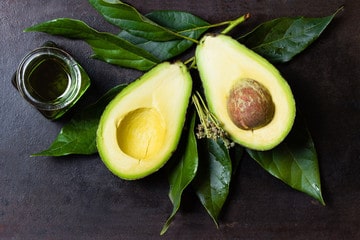
Many people say that avocado has healthy fats, but what they mean is that the fruit is quite rich in Omega-3 fatty acids and other nutrients as well.
100g of avocado contains as much as 111mg of Omega-3 acids. This means that eating one avocado fruit could do your body a lot of good.
There are many ways to enjoy the fruit. You can use it as a spread for bread or use it with other fruits to create a rich, healthy smoothie.
5. Sardines
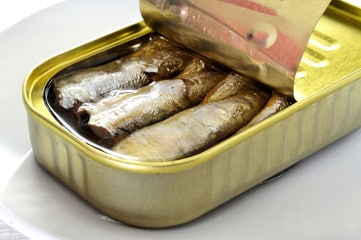
Sardines are very popular in Nigeria and are often added to many dishes.
Sardines are one of the healthy Omega-3 foods in Nigeria.
In fact, one can of sardines contains 2,205 mg of Omega-3 fatty acids.
According to research, regular consumption of sardines can significantly improve lipid profiles and reduce cardiovascular risk factors.
In addition to their omega-3 content, sardines are also rich in protein, calcium, and vitamin D, which are essential for bone health.
They can be eaten straight from the can, added to salads, or incorporated into stews and soups, making them a versatile and convenient option for boosting your omega-3 intake.
6. Flax seeds
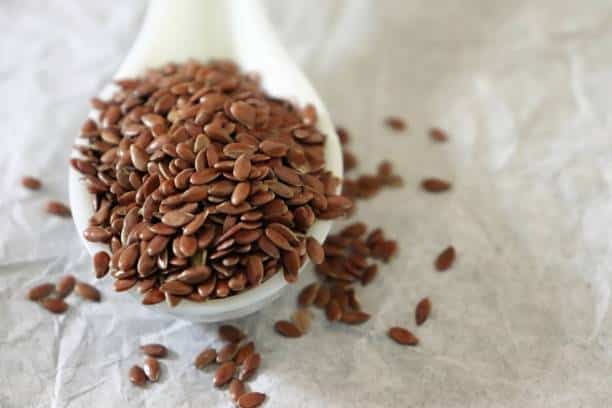
Flax seeds are a tiny but mighty source of omega-3 fatty acids, particularly ALA.
A tablespoon of flax seeds contains about 1.8 grams of omega-3s, which can help reduce inflammation and support heart health.
Flax seeds are also grinded and used to make flax oil, which is considered very healthy.
These seeds, although quite small, pack a lot when it comes to nutrients, including fibre, protein, magnesium, and Omega-3 fatty acids.
Vegans often use flax seeds to create a substitute for eggs.
7. Spinach
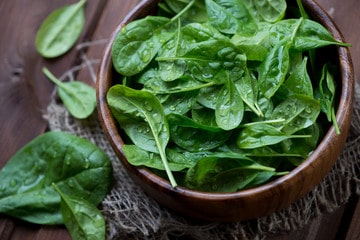
Spinach is one of the top healthy leafy vegetables in Nigeria and is also rich in Omega 3 fatty acids.
100 grams of spinach contains 370 mg of omega 3. It is used in preparing various meals.
Spinach is also rich in vitamins A, C, and K, as well as iron and calcium, making it a comprehensive addition to a healthy diet.
Adding spinach into traditional Nigerian dishes like soups, stews, or as a side dish can help boost your intake of omega-3s and other essential nutrients.
Its versatility and aromatic flavor make it easy to add to various recipes.
8. Soybeans

Eating soybeans is a great way to get more fiber and vegetable protein.
However, they contain omega-3 fatty acids and are highly nutritious.
Dry roasted soybeans have the most omega-3 fatty acids.
9. Chia Seeds
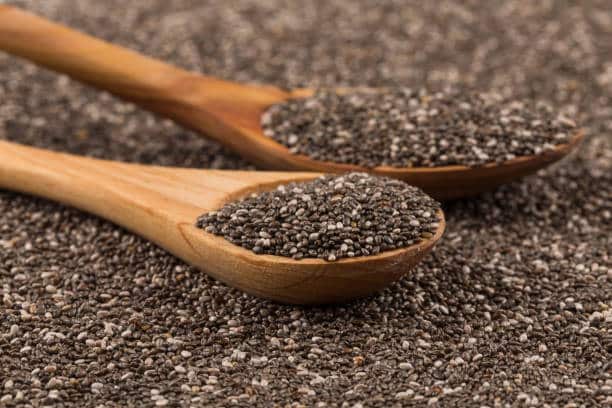
Chia seeds are another rich source of Omega-3 acids. They are one of the healthy edible seeds in Nigeria.
Chia seeds are commonly used as ingredients for preparing things like salads, granola, and smoothies.
Like flax seeds, vegans also use chia seeds to make a substitute for eggs because of their texture after grinding.
10. Dates
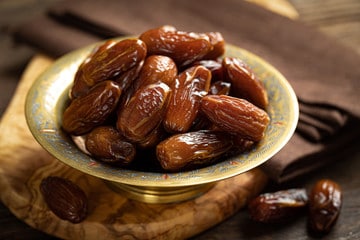
Dates, especially red dates, contain a moderate amount of omega-3 fatty acids along with other essential nutrients.
Dates contain a moderate amount of Omega-3 fatty acids; however, red dates have more Omega-3.
Nonetheless, this nut is very healthy and packed with many other essential nutrients.
The natural sweetness of dates makes them a healthy alternative to refined sugars, helping to satisfy sweet cravings while providing nutritional benefits
Bottom Line
These are just some of the sources of Omega-3 fatty acids. They are also present in other foods like seaweed and algae, canola oil, oysters, hemp seeds, and more. Just make sure to include it in your diet regularly, along with other healthy foods, to keep your body healthy.
YOU SHOULD ALSO READ:
- 13 Nigerian Foods That Are Rich In Vitamin E
- 5 Healthy Nigerian Foods for Pregnant Women
- 10 Nigerian Foods Rich In Vitamin C
- 10 Nigerian Foods That Are Easy To Digest
- 10 Nutritious Nigerian Foods For Parties
- 5 Healthy Nigerian Alkaline Foods
- 7 Healthy Nigerian Foods for Hypertensive Patients
- 12 Nigerian Foods That Boost Breast milk Production
- 8 Healthy Nigerian Foods for Babies
Collins Nwokolo is a human physiologist, writer and health enthusiast. He loves writing helpful articles on health and fitness, which he enjoys sharing with everyone.





